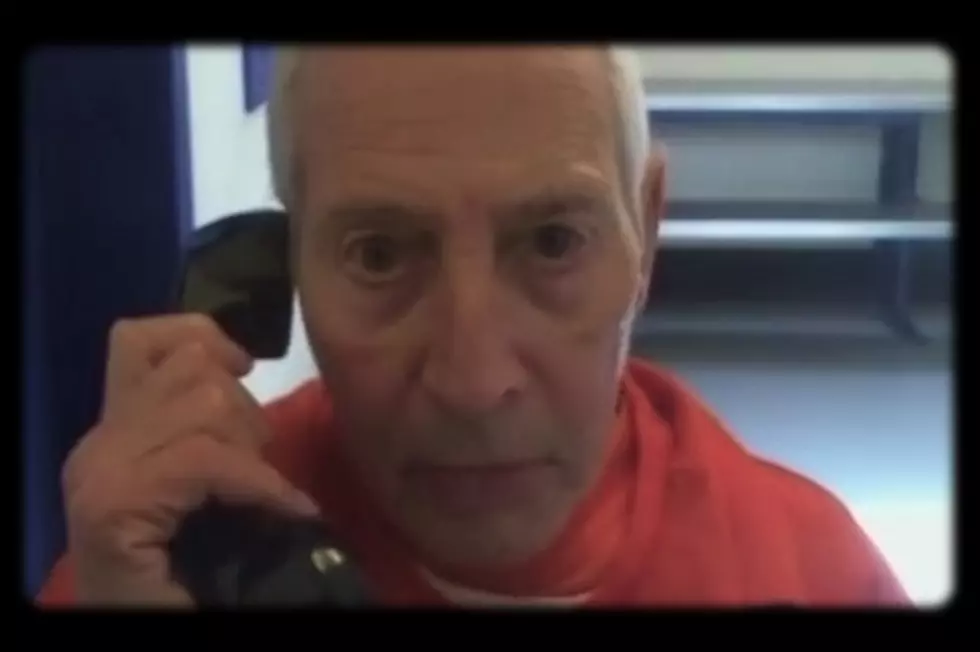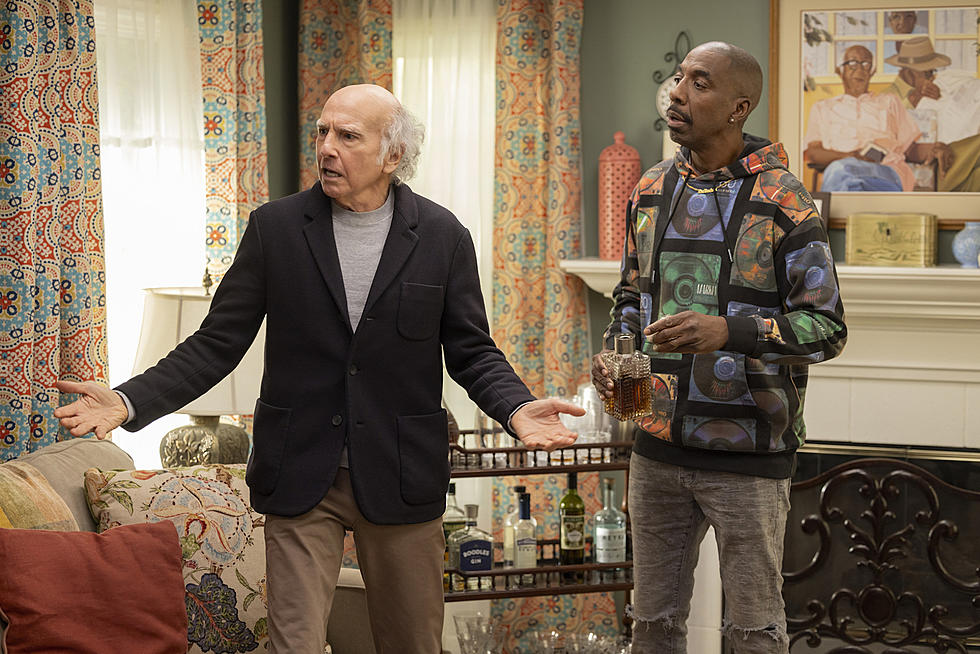
Dawn of the Living Dead: TV Characters Refuse to Stay Dead and Why That’s a Problem
Television characters are killed off all the time, but what happens when it turns into a gimmick or trick that incites denial? Where is the weight in losing a character only to be led to believe they’re alive or will be resurrected?
Whether or not you’re an active TV watcher, one look at social media over the past several months will reveal just how much of a trend major TV deaths have become this year. Here’s where I’ll warn you: If you haven’t caught up on Game of Thrones, The Walking Dead or The Leftovers, I strongly advise you to stop reading now. What follows are the mother of all spoilers, but you knew that, unless you’ve been living under that dumpster with Glenn. (Whoops.) But deaths in these series are unlike the finite ones that have come before them, perpetuating non-stop theorizing that’s dominated pop culture more than the shows themselves.
First up was Jon Snow. Kit Harington‘s bastard boy-turned-Lord-Commander of the Night’s Watch was killed off in one of the most shocking TV deaths since the Red Wedding and Brody’s execution on Homeland. Though A Song of Ice and Fire book readers knew the attack was coming, the character has been built as such an essential element to the Westeros narrative that killing him off seems like a bait and switch. Unlike previous GoT killings, there’s still hope (and theories) that Jon Snow plays a larger role in the story, plus mounds of evidence around his return. From the Season 6 set photos of Harington, to George R.R. Martin’s comments about Jon’s return in the next book, to Harington finally admitting he’s not done with Thrones to how his death would make all the hints at his parentage last season suddenly worthless, all clues point to Jon Snow’s imminent return.
While the showrunners, (initially) Harington and the rest of the cast have all assured fans over and over that “dead is dead is dead is dead,” the more they deny a return, the more it seems likely. We won’t truly know the answer until next season, but in the mean time Dan Weiss and David Benioff’s latest killing has incited a mass of wild conjectures and disbelief, leading to what I’m dubbing the Jon Snow(ball) Effect.
Audiences will be conditioned to react in the same way each time a character dies: shock, mourn, speculate, anticipate, celebrate.
Soon after one beloved character was rippled from the small screen, the next biggest series followed suit. Last week, The Walking Dead decided to take a page out of Martin’s playbook by seemingly killing off Glenn. This of course spurred another set of “Is Glenn Actually Dead?” headlines questioning, analyzing and picking apart every frame of the death scene like walkers eating organs. And speaking of organs, that was the major piece of evidence scrutinized in the episode – were those Glenn’s intestines we saw in the shot or Nicholas’? There’s also the dumpster possibility, the walkie-talkie call, photos of Steven Yeun back on set and the showrunner’s comments giving some hope. But all clues aside, the reality is that Glenn could have died and unlike Jon, he exists in a world void of the fantasy elements to bring him back. As GoT fans know, there are endless ways Jon can be brought back to life and return to the show, unlike the post-apocalyptic world of The Walking Dead. Yet such stern refusal to believe what’s shown on screen has led fans to speculate other possibilities, look for hope in every corner and, in a sense, lose trust in the writers. We no longer accept that dead is dead because if Jon Snow is allowed to come back it effects every major death that follows.
Since all deaths come in threes (why that’s a myth, I still don’t know), that brings us to Exhibit C: Kevin Garvey. In the latest episode of The Leftovers, Justin Theroux’s character commits suicide with the expectation that he’ll be revived by a shot of adrenaline. Much to fans’ surprise, Kevin was left writhing on the floor and foaming at the mouth at the end of the episode, adding another body to the pile of TV corpses. It came as a sudden shock in the narrative that’s unusual for The Leftovers. We’ve seen characters die brutal deaths and literally disappear, but this isn’t the type of series that butchers characters for no reason or to simply add shock value. There’s a strong chance Kevin will be back. Co-creator Damon Lindelof echoed The Walking Dead boss’ Glenn statement with a similar comment about the return of Kevin in some capacity and like GoT, The Leftovers gives hope with its possibilities of supernatural or divine intervention. Or maybe Theroux is actually dead and my optimism is merely a result of wishful thinking instilled by Jon Snow denial. Whether or not it brings Kevin back, I have faith in this show over any other to use death as a gateway to powerful storytelling.
This method of axing major characters only to reprise them isn’t completely new. The X-Files did it with Mulder, Sherlock briefly did it with Holmes, Family Guy did it with Brian, Lost did it with John Locke, Game of Thrones is also doing it with a minor character and in the American Horror Story universe, death has no rules. Yet the Jon-Glenn-Kevin deaths signal something different from those previous fake-outs, a pattern that may prove damaging to future TV writing and the ways in which we consume it. Should those three return, audiences will be conditioned to react in the same way each time a character dies: shock, mourn, speculate, anticipate, celebrate. If we come to expect the twists then there will be no twists. The horror of a Red Wedding-like episode will have little effect if we know the characters will eventually return, be it in human form, ghost form, whatever. This is what led to much of the frustration with AHS: Coven and now AHS: Hotel, where new rules are invented to bring dead characters back. If more TV shows follow this route, future shows will no longer be able to employ the shock death since we’ll not only expect it, but our emotional responses to it will shift. The mourning period will get shorted as its trumped by viewers’ denial and expectation of the writers’ deception. The next time a big character is genuinely killed off, like another Will Gardner or Matthew Crawley, it won’t hit viewers as hard. Some will be even more upset at the writers who don’t bring characters back.
We’ve reached the point of peak TV death, where the shock hardly lasts more than a few days as new evidence piles up before the next episode airs. We immediately look for reasons to deny the possibility of death, almost subconsciously teaching ourselves how to skip grief. Much of the reward of watching dramatic television is catharsis, and sometimes that’s learning to say goodbye to something we’ve spent months or years watching and loving. We can’t fully say goodbye to Breaking Bad now that Better Call Saul might bring Walt or Jesse back one day. Before Mad Men ended Matthew Weiner was questioned about a spin-off. We can’t even say goodbye to shows that ended over 20 years ago with Full House and Gilmore Girls revivals on the way. Stuck in a era of television impermanence, there’s no such thing as letting go, of characters or entire properties. Nothing dead is dead on TV anymore. Streaming platforms reboot and remake canceled and long-gone series, and that’s not to mention the new heap of films being adapted for TV. Most of the time we use this reboot news to complain about the lack of originality in the industry (still valid), but this cyclical pattern is also cause for concern for viewership behavior. We’re learning to cling to the familiar, obsess over the details and become even more detached from the actual narrative we’re watching.
“We” can refer to a couple things here: TV journalists and TV viewers. Just as much as I get frustrated at the unending headlines theorizing TV plots, I’m 100 percent guilty of contributing to it. Speculating on Twitter, sorting through clues and theories on Reddit, and writing up a combination of both has become a bit of an addiction. Whether it was trying to find the Yellow King of True Detective season 1, predicting who and what and how and when and why things will happen in GoT, or decoding death scenes frame by frame, such behavior has become just as essential to TV as the actual watching of it. If anything, most of us probably expound more energy and time analyzing TV shows than actually watching them.
Speculation culture is far from new, however, especially in the film world. It’s as old as the trades announcing casting reports and contract negotiations, but has also spilled over into the marketing. Scrutinizing every detail of every trailer, writing deep dive analyses of posters, ripping apart cast interviews to pick out the clues possibly revealing plot points and character details. Just look at what we’ve already done to Star Wars: The Force Awakens, ripping every inch of the marketing to shreds to find some kernel of information previously unknown. We did it with Spectre, theorizing over a year before release whether or not Christoph Waltz was indeed playing Blofeld (spoiler alert, he does). As our own Matt Singer recently wrote surrounding recycled twists inherent to the Hollywood blockbuster formula, “We’ve arguably reached a point in film culture where movie marketing is more carefully analyzed than the movies themselves.” And it’s exhausting.
Though not a new trend in TV, the same obsessive behavior has bled over onto the small screen in more rampant ways, occurring at a weekly basis for each episode. Just think how many Game of Thrones reports on actual news you’ve read this year compared to speculation reports and theories. I’ve written more than I can count, and I totally love it, partially because I feel like a mini Sherlock getting closer to cracking the case. There’s nothing wrong with guessing and trying to put pieces together, but at a certain point even I get tired, of reading it, writing it, guessing it, and I end up feeling disappointed when the mystery turns out to be in line with a theory. What fun is that?
Fan speculation culture is beginning to plateau to a point where twists are no longer sacred, but the bigger problem is how manipulative those twists have become. TV writers are creating shocking storylines that cater to our obsession to dissect, and pour over episodes like ants gorging at a picnic. If they do bring our beloved characters back we’ll be too full to appreciate it. Though only then will we know what impact this year’s TV death phenomenon will have on future plots and audiences. If Jon returns, TV deaths will likely always instill a sense of doubt, but if Glenn remains a genuine killing, there’s hope the reaction may balance out, as his death happened in a more realistic universe. There’s even a part of me, as much as my inner Thrones geek hates to admit, that wishes Jon is actually gone so we can stop playing this prediction game. But at the least I hope both shows can prove their deaths were essential to the storylines and more than tools for spiking ratings and shock value. Out of all three Lindelof seems the most likely to use his main character’s death to serve the trauma and grief at the heart of The Leftovers. But here I am again, predicting.
Maybe it’s the fault of Weiss and Benioff, who may or may not be misleading us, that caused this snowball effect of expectations and denial. Maybe it’s fans’ reaction and resistance to the George R.R. Martin killing machine that’s ruthlessly taken our favorite characters. Or perhaps we’re to blame for churning the social media monster with incessant reactions and opinions and hypotheses. Had we allowed TV series and even films to merely exist and delightfully surprise us at their own pace, maybe we wouldn’t feel so entitled to have our characters brought back from the grave. But just as much as you can’t stop theorizing, neither can I, and writers shouldn’t expect us to. It’s become a part of pop culture whether we like it or not. Now that fans are catching up with the writers, it’s time for the creative minds of these shows to get more creative. Give us TV narratives that surprise and move and startle us in ways that push stories forward and spark an array of emotional responses. Maybe the result of Jon, Glenn and Kevin’s deaths will. Until then, if showrunners kill a character, just bury it.
More From ScreenCrush









